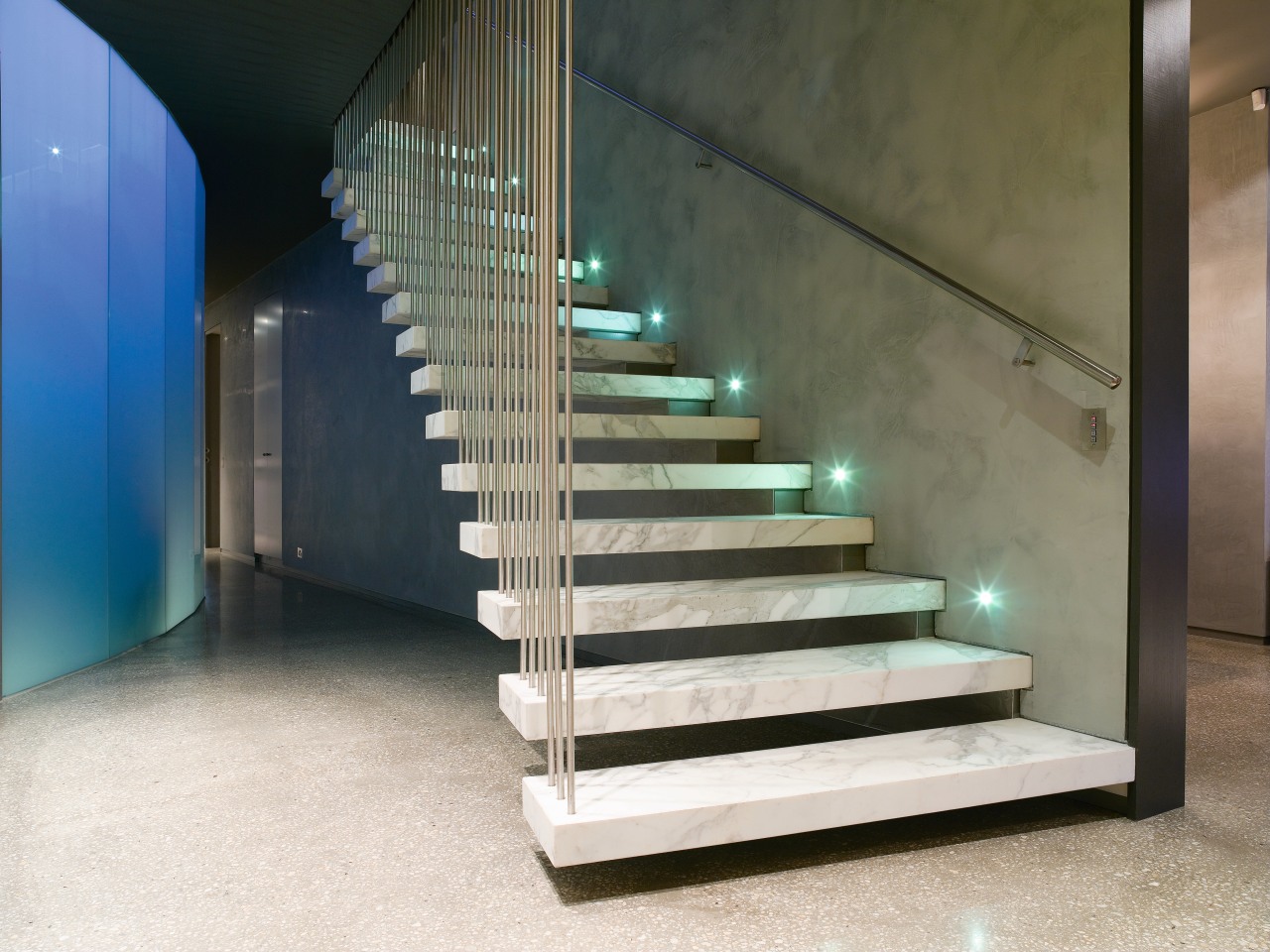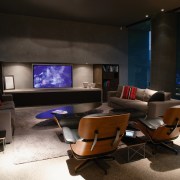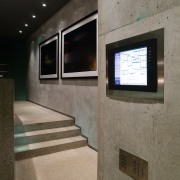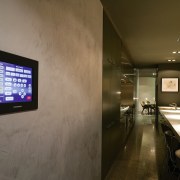Switched on
Planning a full home automation system wasjust as important as the architecturaldesign of this new house
It's often the things you can't see that make all the difference to your comfort level. And for the owner of this new house, that was precisely his brief to Cableman, the company that supplied and installed the home automation system.
Nick Williams says the beachfront house, designed by Allan Powell, has a raw, contemporary architectural flavour. Its concrete structure and plastered walls are key design features that Williams did not want compromised by audiovisual equipment.
"It was important to retain the uncluttered look of the interior," he says. "I didn't want anything to be intrusive. Everything, from the speakers to the wiring, had to be hidden."
Simplicity was also a key element of the design brief he gave to Cableman but not at the expense of advanced technology.
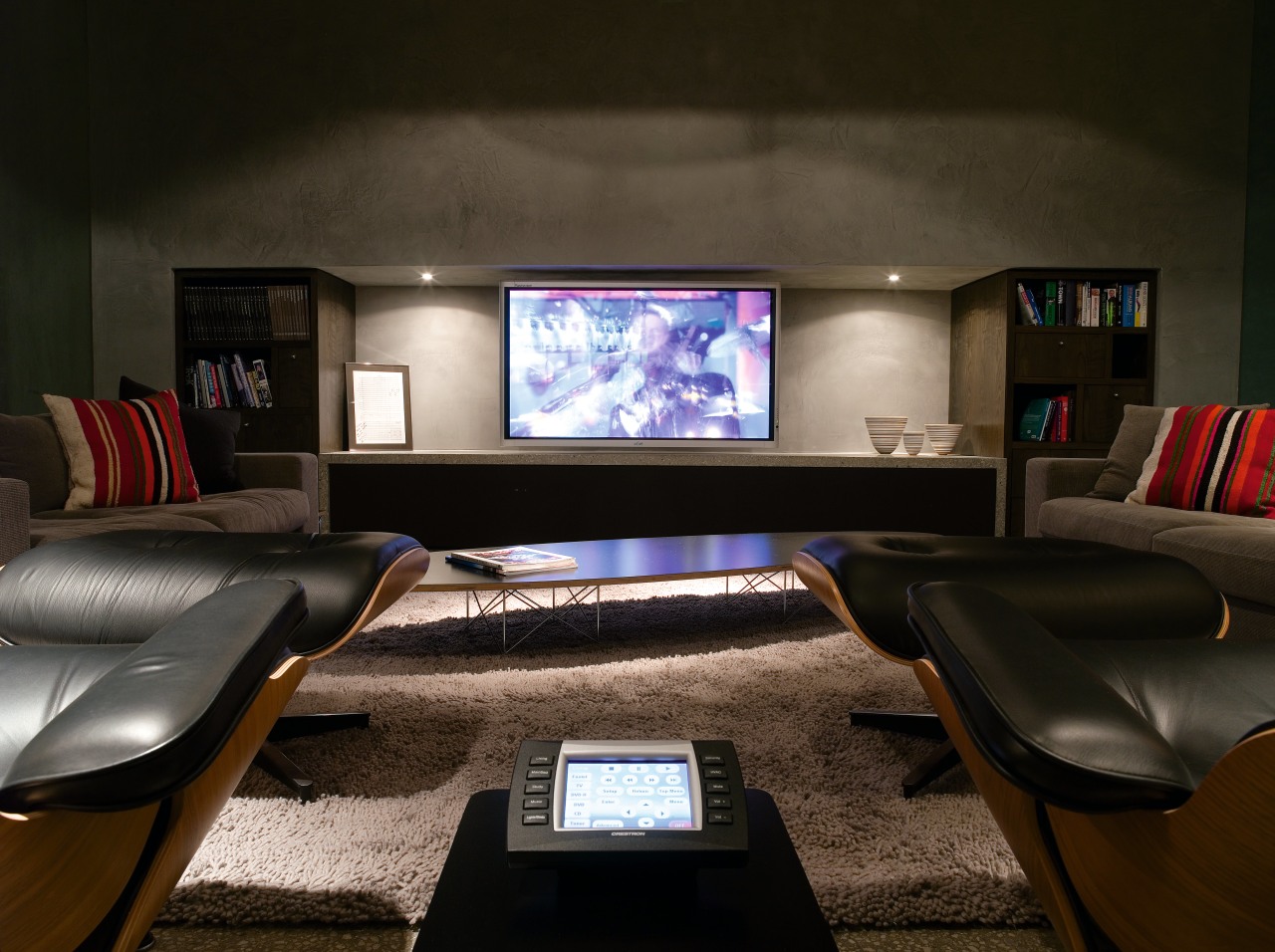
"The audiovisual equipment, lighting, blinds, security and air conditioning all needed to be fully automated, but the system also had to be simple to use," says Williams.
The solution was a Crestron system, which is controlled by three touch screens, including a portable screen that allows the owner to change settings from the comfort of an armchair.
The lighting, which incorporates a Dymalite system, is programmed with a night setting that turns on appropriate lights throughout the house at a single touch of the screen. The system can be programmed with a range of customised settings to provide mood lighting.
All the systems, from the heating and air conditioning to the security and sound system, can also be accessed from the owner's computer at work.
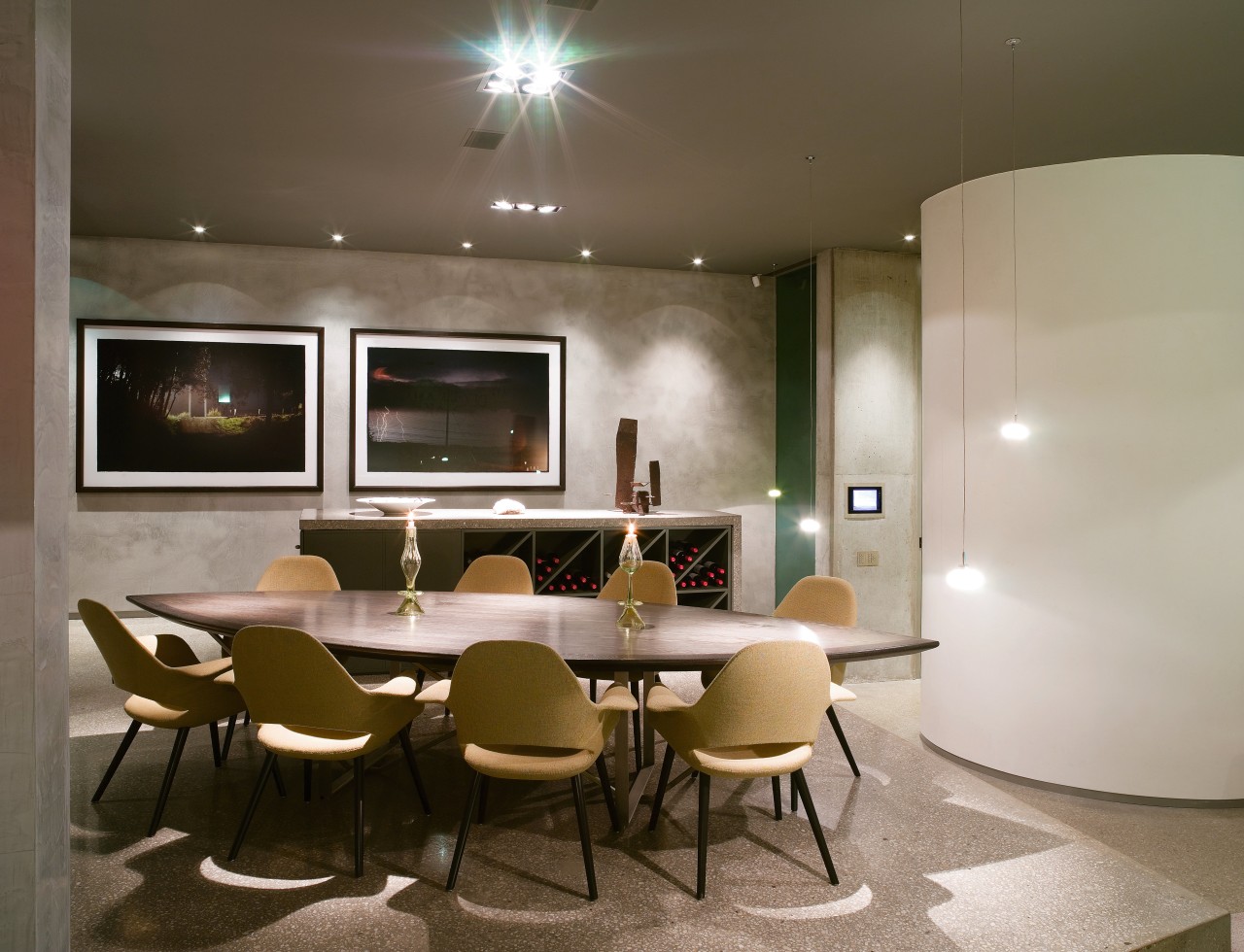
Williams says he did not want a dedicated home theatre, preferring to have his audiovisual equipment in the main living room, which is furnished with retro 1950s furniture classics, including two Eames chairs and matching ottomans, and an Eames elliptical coffee table.
To preserve the living room look, speakers and other hi-fi equipment are concealed within a low, concrete-framed cabinet beneath a 62-inch Fujitsu plasma screen. The cabinet was built to complement similar concrete cabinetry in the dining room.
Williams says there are also speakers in the ceiling above the armchairs to provide a full surround-sound system. The audio can be fed to several other rooms and the outdoor patio. All of these speakers can be controlled from the Crestron touch screen.
Credit list
Interior designer
Automation system
Touch screens
Story by: Trendsideas
Home kitchen bathroom commercial design
